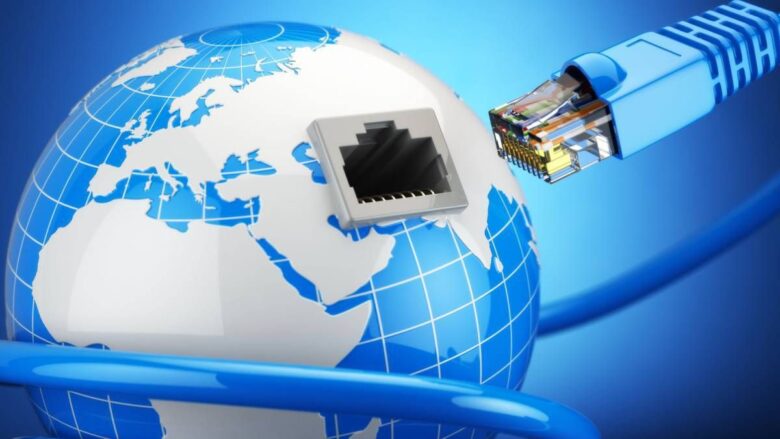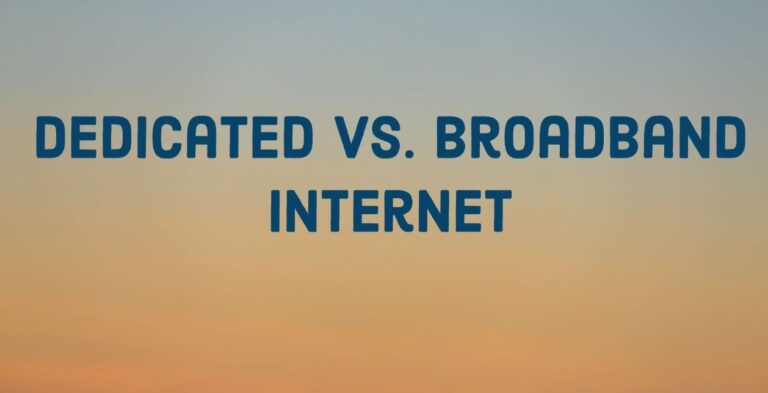The majority of the businesses today depend heavily on internet connections for video conferencing, file sharing, email sending, VPN, VoIP, and almost everything. You must have good internet service to run all your business operations smoothly.
If you have an entrepreneurial spirit and are planning to launch your business, then you must know the difference between broadband and dedicated internet. By gaining knowledge about different types of connections, you can ensure that your business operations are functioning properly and progressing day by day.
You may find internet access technologies a little complicated initially, but you only need to understand some major distinguishing factors. Your final decision to choose might vary depending upon your budget, goals, applications, business size, and uptime requirements. An important thing is to be well aware of all the advantages and disadvantages before ordering a suitable connection based on your needs.
A Dedicated Internet Connection: Definition & Explanation

An internet connection where your internet service provider devotes a certain amount of bandwidth to your network. No one else gets to know the amount of bandwidth apart from other users connected to the same physical circuit i.e. the home network. With a dedicated internet connection, you can enjoy a highly reliable and consistent performance throughout your service time period. Dedicated Internet access is an acronym for DIA, and is available in a wide variety of different connection types as listed below:
- T3 – DS3
- T1 – DS1
- Ethernet over Copper EoC
- Dedicated Fixed Wireless
- Dedicated Fiber (Metro Ethernet, Fast Ethernet, EoF, Gigabit Ethernet)
You get different types of internet services depending upon your location. The kind of dedicated Internet connection that you may need depends on what your residential location can provide you. Each circuit type is valued as per their contract length and bandwidth speed level. The contract terms usually range from 1 to 3 years.
If you request a dedicated Internet connection, the bandwidth amount you get is formally assured. You also get a document named as Service Level Agreement (SLA) that guarantees performance metrics like uptime, packet loss, repair timeframes, and network latency. This document makes sure that you get a stable internet connection at all times regardless of the total number of users in your area.
What is a Broadband Internet Connection?

A shared network amongst multiple users in an area is called a broadband internet connection. It is a type of network that shares a common larger connection.
In this type of connection, you only get the package or maximum speed which is contrary to the speed that dedicated internet service offers. You do not get any official guarantees regarding the quality of your service and the speed that you may get.
Your speed depends highly upon your location and your Internet Service Provider. Always go for a reliable ISP, who has a reputation for less network congestion and traffic like Charter Spectrum™. Its Spectrum packages are top-tier offerings that are known for high bandwidth delivery. Read more
A common concern among users is that their internet speed slows down at night and operates normally during day time. This is because the bandwidth speed is very unpredictable with a lot of ups and downs in performance. This creates issues in smoothly running applications and further results in dissatisfied customers.

So, the main difference between broadband and dedicated internet is predictable performance and reliability. Listed below are the broadband connection types:
- DSL
- Cable
- Satellite
- Wireless
- Fiber Optic
Broadband offers asymmetrical internet connection that gives you access to the best download speeds but awful upload speeds. Whereas for businesses, upload speed is very important to transmit data out to users and applications. Fiber Optic is the only broadband connection type that offers symmetrical internet speeds. Another key thing to consider is that broadband service varies a lot based on your location, distance from the device, and available providers in your area. So, before making the final purchase decision, do consider the factors of uptime and low performance.
All in All

Hopefully, after learning about the features and components of broadband and dedicated internet, you can make a wise purchase decision. There are multiple things that you must consider like upload speed, download speed, uptime, business size, etc. Once you have thoroughly evaluated all the involved factors, then make a wise decision. Good luck!

